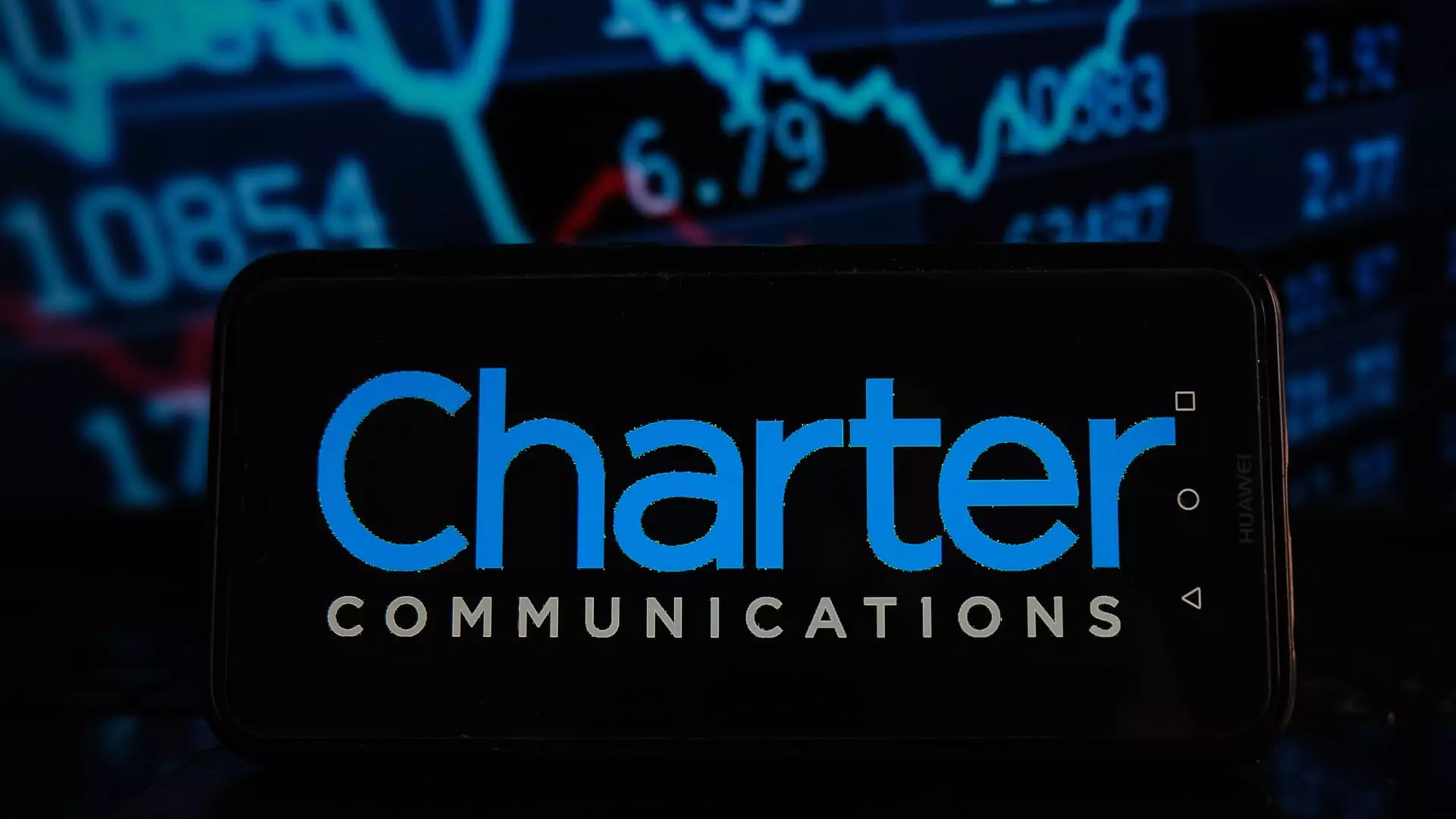The recent merger between Charter Communications and Cox Communications is more than a business transaction—it’s a glaring indication of a troubling trend in the telecommunications sector. With a staggering valuation of $34.5 billion, this deal stands as one of the largest in recent memory and raises significant concerns about consumer choice, pricing strategies, and the potential monopolization of internet services. While business executives tout the benefits of such mergers for operational efficiencies and cost synergies, everyday consumers may find themselves on the losing end.
The landscape of broadband and cable services has experienced seismic shifts, particularly with the rise of wireless competitors. As customers increasingly abandon traditional cable TV bundles in favor of more affordable streaming options, companies like Charter and Cox now face the dire need to adapt—or risk losing their customer base altogether. Charter’s report of a decline in both cable TV customers and broadband users highlights a stark reality: the legacy of cable is fading, yet the response from these giants appears to be a desperate grab for market share rather than a tangible effort to enhance consumer experience.
Competition or Conspiracy?
There is a critical question at the heart of this merger: will it foster competition, or will it lead to further monopolistic practices? As Charter and Cox join forces, the potential for higher prices and reduced innovation becomes alarmingly prominent. Combating competition from new technologies—such as 5G and fixed wireless options—should inspire these firms to innovate and improve service quality. Instead, the urge to consolidate power may stifle the appropriate responses needed to thrive in a dynamic marketplace.
The Telecommunications Act of 1996 aimed to foster competition in the industry, but with this merger, the intentions behind that act appear compromised. By positioning themselves as the dominant forces in broadband services, Charter and Cox threaten to undermine the very principles of fair competition. As they evolve into behemoths, small local providers are increasingly jeopardized, leaving consumers with fewer choices and ultimately higher prices.
Redefining Consumer Relationships
While the merger might promise a seamless transition for customers, the reality could be starkly different. Charter’s potential growth in mobile services could lead to aggressive bundling strategies aimed at retaining customer loyalty. However, this could translate into higher overall costs for consumers who are trying to navigate through complicated pricing structures for cable, internet, and mobile services. In a world where clarity and straightforward pricing are desired, the merging of these titans could create a convoluted marketplace fraught with hidden fees and unclear service agreements.
Charter’s CEO Chris Winfrey will steer the ship as president and CEO post-merger, which speaks to the company’s intent to maintain a similar strategy rather than innovate for a new era. Combining forces with Cox, a longstanding player in the industry, may simply perpetuate a system that favors corporate interests over consumer welfare. The anticipated annualized cost synergies of $500 million are touted as beneficial, but one must question who truly stands to gain from such efficiencies.
A Hippo in a Room Full of Elephants
As Charter and Cox positions themselves in the industry landscape, it resembles observing a hippo in a room full of elephants: apparent dominance, but with significant environmental implications. The merging of these communications giants serves to showcase how corporate power can ultimately eclipse the voices of individual consumers. Smaller, regional broadband providers find themselves boxed out, creating an environment where innovation stagnates, and consumer needs take a backseat to profitability margins.
In an era where consumer advocates push for stronger protections against monopolistic practices, the merger should ring alarm bells. The reality is biting: a few companies wield substantial control over what services consumers have access to, and this cohort is not always motivated by the best interests of the public. Instead, strategies aimed at consolidating market dominance threaten the fundamental premise of competition—offering consumers the choices they deserve.
This merger is not a victory for innovation or competition, rather it stands as a stark warning: the telecommunications landscape may be reshaping into a realm defined by fewer choices, higher costs, and overarching corporate dominance. Real progress in the industry requires conscious efforts aimed at uplifting smaller players, not further entrenching existing corporate goliaths.

